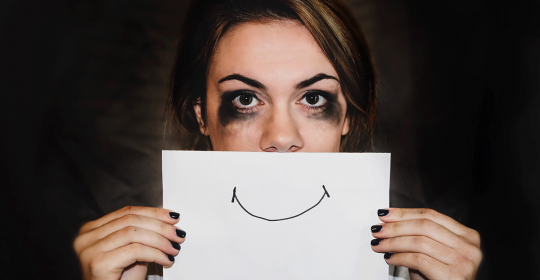
Battling Depression Through Human Connections – Psychologists, Aamnah Husain, in Reset Magazine
According to the World Health Organization (WHO), depression is considered to be a major mental health issue that affects as many as 300 million people globally.
As per WHO, some primary symptoms of depression include intense sadness, a lack of interest in activities a person enjoyed doing in the past, sleep troubles, an excessive or low appetite and constant exhaustion among others. It can severely impact a person’s life, making it difficult for individuals to focus at work and in school. Mental illnesses such as depression, bipolar disorder, schizophrenia, dementia, anxiety disorders among others can have a serious, detrimental impact on an individual’s well-being and life.
“You feel so unmotivated, you don’t want to get out of bed,” Aamnah Husain, a counseling psychologist at German Neuroscience Center in Dubai, told Re:Set.
Dealing with a mental illness like depression takes a huge toll on one’s sense of self, making it very difficult for a person to put themselves out there in their personal and professional lives, Husain said.
According to Husain, suppressing emotions may make things worse and cause a person to feel increasingly anxious. For someone with depression, having a conversation about mental health can be tricky. “When you’re struggling, you don’t want to go around talking about it,” she said, adding that people often unknowingly make fun of someone’s pain without realizing how exhausting it can be to live through it. “I wish someone would come in [for help] earlier,” she said, explaining that many people wait for too long before seeking professional advice.
It’s crucial to teach children to talk freely about their emotions and not encourage harmful stereotypes from an early age, Husain emphasized. “For boys, there’s an expectation they should fix their issues. Being aggressive is acceptable but crying is not.”
According to WHO data, 13% of women across the world battle mental health illnesses post delivery, most notably depression. Postnatal depression is characterized by several symptoms after giving birth such as constantly feeling low, persistent exhaustion, sleep issues, trouble focusing on tasks and unable to connect with one’s baby among others. […]
“I don’t think therapy should be very directive. Advice giving should be minimum”
According to Husain, the equation between a therapist and their patient is complex and dependent on several factors such as where they’re from, their past experiences and their value system. “I don’t think therapy should be very directive. Advice giving should be minimum,” Husain told Re:Set, adding that the therapist should help a patient manage their symptoms without telling them what to do with their life. “The person is coming to you for hope, for a different perspective. It is a partnership. The decision-making should be solely the client’s,” she said, stressing that nonjudgmental acceptance is important.
When it comes to the stigma attached to mental illnesses, Husain believes people of authority, celebrities and friends can make a difference. “When influencers talk about mental health, it starts to affect the population,” she said. The psychologist also encourages people to educate themselves on mental health if they know a loved one is battling mental health problems. […]
The full original article was published in Re:Set Magazine.

